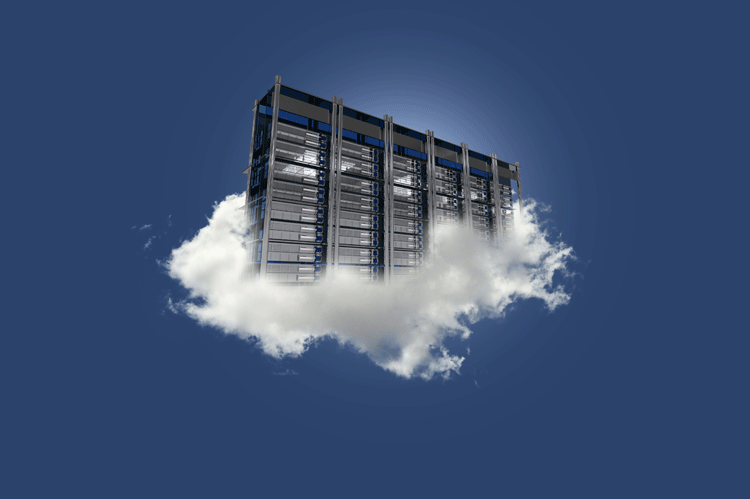When choosing a cloud platform, newcomers may only look at the cost, but many different business needs should be taken care of before making the final call. We hope to help you get a clear perspective on three major cloud platforms.
Right now, there are three main players in the market: Google Cloud Platform (GCP), Amazon Web Services (AWS), Microsoft Azure. The fierce competition has enabled cheap cloud computing prices and excellent competing feature-set. This helps small business to grow easily and big business to capitalize on the growth that they have been doing for so many years.
See also: 4 common mistakes companies make in transitioning to the cloud
Cloud computing has single-handedly changed how technology works. Now anyone can host their website on the cloud, manage their files, and do stuff not possible before. Big business also takes full advantage of cloud computing.
Why cloud is important for big and small business players
It is important to understand why cloud computing is critical for the current market before we dive deep into the actual comparisons.
Cloud computing enables companies to forget about maintaining an infrastructure. Many large companies such as LiveEdu, Netflix, and Spotify take full advantage of the cloud and by doing so, they don’t have to worry about the technicalities that go into maintaining a cloud. Also, they don’t have to worry about the infrastructure, enabling them to focus on what they do best: provide their service to the audience.
Small business can also take advantage of cloud and focus on developing their product and not the infrastructure that is required to make them operational.
Who’s who?
Google Cloud Platform (GCP): GCP started their journey on October 6, 2011. With only 5 years in operation, they have created good presence in the market. The initial push was done to power their own services such as YouTube and Google. Later on, they built enterprise services and enabled anyone to host in the cloud. Google manages GCP.
Amazon Web Services (AWS): With 11 years in operation, AWS is one of the oldest players in the cloud market. Their computing services are extensive and cover important cloud sections such as deployment, mobile networking, etc. Amazon manages AWS.
Microsoft Azure: Azure is also 6 years old and has shown great promise in the market. They can easily be associated with the leader group in the market with AWS. Azure also provide a complete set of cloud services. Microsoft manages Azure.
Note: Cloud services are composed of multiple pre-configured products. To give us a reference of providers’ insight, we will call them “solutions.” These “solutions” can be used to solve a problem with good efficiency and reliability.
A three-way battle
To understand the difference between the three major players, we need to evaluate them using different parameters. In the end, we will try to also give a general outlook and use cases for which each of the cloud computing services can be used.
Please note that we are not going to discuss pricing. The reason is simple; the prices fluctuate too much, and that’s why it’s best to check their respective pricing page to know more. In full disclosure, here they are:
- GCP pricing page: https://cloud.google.com/pricing/
- Microsoft Azure pricing page: https://azure.microsoft.com/en-us/pricing/
- AWS pricing page: https://aws.amazon.com/ec2/pricing/
Compute
Compute is the processing power that the cloud services offer. In general, the more compute power, the better. It is directly proportional to the price, and hence price also plays a significant role in understanding the compute power offered by the three players.
So if you need more computing power, you just need to allocate more resources to your current session. Startups are most benefited from this approach as they can order compute power anytime they want without worrying about installation, maintenance and hardware costs.
Let’s start with AWS. They offer EC2(Elastic Compute Cloud) which handles all the compute services. It works by managing virtual machines which can either be configured by the owner or comes with preconfigured settings for ease of use. In comparison, GCP offers GCE (Google Compute Engine) to do essentially the same thing. Our last contender, Microsoft Azure provides Virtual Machines and Virtual Machine Scale Sets.
All of them support containers. They are easy to manage and truly portable. Amazon’s EC2 Container Service(ECS), Google’s Container Engine and Azure’s own container service enable you to handle your instances more swiftly. You can add more stats to them easily or can move them to new locations without much hassle.
Conceptually, all of them are similar however, the real struggle happens when you try to see it through the lens of price and user experience. Read the cloud cost analysis on RightScale to get an idea of which cloud platform offers the best bang for the buck when it comes to choosing a cloud platform according to compute power.
Storage
Storage is yet another important parameter in understanding how a cloud service works. Cloud storage works completely different from the normal HDD or SSD on our computers. They need to solve multiple problems and also make sure that no data is lost during the transfer. The complexity led to some brilliant solution from the best cloud service providers.
Out of the three cloud providers discussed here, Amazon S3 (Simple Storage Service) is considered the best. It has been extensive documentation, proper community support and the longevity, i.e., tried and tested. So, if you are looking for a proper storage solution with plenty of resources, Amazon S3 can be your best bet.
The other two players also offer decent storage solution. Microsoft Azure Storage and Google Cloud Storage offer reliable services.
Just like compute power, storage also has a price tag associated with it. As Amazon has better storage solution, they are costly, and hence only be chosen if you have the budget for it.
Backup solutions are also provided, and they work differently when it comes to pricing.
Locations
When it comes to deploying your application, location is important. First, you want to make sure that the application performs at its peak by having the lowest possible route to the intended customer base. Secondly, you want to make sure that you spend less money when it comes to using these cloud services. Yup, the prices differ according to which region you are taking services from. For example, US can be an expensive place to run a cloud server.
All three of them offer great coverage all around the world. Amazon leads the pack with 42 availability zones. Azure also has a good coverage with availability in 32 regions. GCP have a presence across 33 countries. It should be noted that new regions are added on a regular basis.
Databases
A database is a complex thing to handle however, before you invest in any of the cloud platforms, it is advisable to read their software terms and conditions, and how they manage data on their cloud.
Database images from different vendors let you get started easily. Google seem to be lacking in providing an option to the end user, whereas, Azure and AWS offer a good amount of option to work with. Amazon’s RDS (Relational Database Service) provides support for major databases including Oracle, PostgreSQL, etc. The service manages everything from updating to patching even to offer solutions to common database problems.
Azure SQL database and Cloud SQL offers SQL database handling features for Azure and GCP respectively. They also offer high-performance DB choices such as DocumentDB for Azure, and Aurora for AWS. Clearly, there are multiple types of tools and services offered by the major service providers.
Documentation
Last, but not the least is the documentation. Documentation plays an important role when it comes to choosing the cloud platform for yourself or your company. Ease of use is a valid factor and should not be ignored at all.
AWS offers the best documentation, followed closely by Azure and GCP. AWS documentation is built thanks to its age and contribution from multiple people over a decade.
Some final thoughts
Comparing cloud services can be a tough task but this comparison only scratches the surface and is meant for people who are getting started with cloud computing. If you are stuck and cannot decide on which cloud platform to choose, you can always hire a cloud expert readily available in the market. They know the in’s and out’s of cloud platforms and can suggest you a cloud service according to your need.
If you would like to go to with the safest option, Amazon AWS is the best way to go. If your application utilizes Microsoft products or languages, Azure can help you sustain and take advantage of Microsoft’s ecosystem. GCP stands in a sweet spot and is viable most of the time. As an individual or a company, you need to ensure proper compatibility and testing before moving to a particular cloud service. This leads us to the end of the article.

















